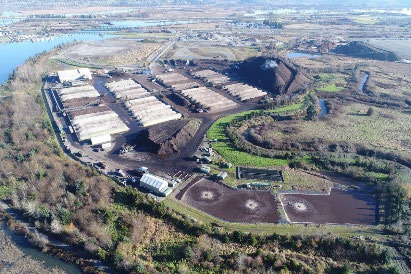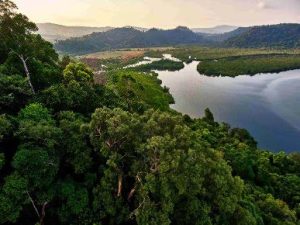Turning food waste into climate action through innovative aerobic composting in Washington State.
The Cedar Grove – Maple Valley and Everett OWC Composting Project, located in King County, Washington, is a certified climate initiative that reduces methane emissions by diverting organic waste to advanced aerobic composting facilities. Registered under the Climate Action Reserve (CAR ID: 866), the project meets North America’s highest standards for verified carbon offset programs and supports growing efforts throughout Latin America.
Operated by Cedar Grove Composting, the project involves the controlled composting of eligible organic residuals—including both residential and commercial food waste—using state-of-the-art technologies at the Maple Valley and Everett facilities.
Composting Technology That Cuts Emissions
Traditional organic waste decomposition in landfills and anaerobic composting systems produces methane (CH₄), a greenhouse gas 28 times more potent than carbon dioxide (CO₂). This project uses:
- GORE® Cover System
- Aerated Static Pile (ASP) with Negative Aeration Technology
These systems transform the composting process from anaerobic to aerobic by continuously injecting air through the compost piles. This results in CO₂ as the primary emission—a far less harmful alternative to methane—while still delivering nutrient-rich compost as an end product.
Verified Environmental Benefits
The Cedar Grove – Maple Valley and Everett OWC Composting Project is a climate-forward solution that supports:
- Reduced methane emissions from organic waste
- Improved soil health through high-quality compost
- Clean water and sanitation (UN SDG 6)
- Sustainable cities and responsible consumption (UN SDGs 11 & 12)
- Direct contributions to global climate action (UN SDG 13)
By managing organic waste sustainably and at scale, the project keeps harmful emissions out of the atmosphere while promoting circular waste solutions.






